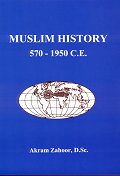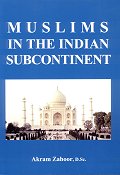
The almost universal disposition, among liberal-minded Americans, to know more of the Oriental religions than their ancestors knew, has been productive of at least one good result, viz., the breaking away from soul-destroying religious superstitions; and the development of an independent, fearless spirit of thought and investigation, which is gradually becoming the aggressive and relentless enemy of the mental slavery of creeds. This may perhaps, be called the evolution of a new and truer manhood, which is much more admirable than the old, whose chief characteristic was its passive belief in religious dogmas contrary to reason and common-sense, the unquestioning following of fallible human leaders, who were never able to prove their right to leadership, nor the truth and validity of the doctrines they taught.
Happily the days of blind credulity are passing away slowly but surely. Appeals to mawkish sentimentality are losing their force and effectiveness. And the more fully developed classes - the clear-headed, well-balanced, rational thinkers - demand a reason for everything, refusing to believe
an irrational theory or dogma which has no better claim to infallibility than the mere assertion of a graduate in theology.
The primary purpose of this book is not to destroy nor weaken any creed or system of theory, nor to make proselytes for Islam, but to arouse and encourage among English-speaking Christians a spirit of calm, persistent and unprejudiced investigation to be applied to their own as well as other systems of religion. Unless one feels his mental independence and determines to exercise it firmly; unless he divests himself completely of the prejudices acquired from those with whom he has been in constant intercourse all his life, and which cling to him more closely than the barnacles to the ship's bottom, his investigation will be of little real value to him. If, as is the rule with the vast majority who claim to be investigators, he seeks only evidence to corroborate the truth of his own religious belief, and to establish the falsity of all others, without a genuine desire to know the truth, his researches will do him more harm than good, and it would be better for him not to undertake any.
A man, viewing a landscape from the summit of a mountain, is not deceived by the apparent dimensions of the objects that meets his gaze in the plain below.... He has learned that distance makes an object appear to the observer smaller than it really is. He has seen men and houses and railway trains within a few feet of him, and he knows just about how large they usually are. In short, he uses his reason and profits by his own actual experience, without consulting any scientific authority whatever.
But when this same man undertakes to study a religious system, different from that which has been taught to him from childhood, he follows a very different course, as a rule. He stands upon the mountain and judges the size of the objects below by the size of those within his immediate
environment. He isn't quite able to understand why the objects below should be smaller than those about him, and so he consults "an authority," the writer of which probably never has been below the summit of the mountain; or if he has, remained so near the base that he could run hastily up to the top, if he found himself in danger of learning anything of the size and nature of the objects in the far distance.
Since my return to my native country I have been greatly surprised, not only at the general ignorance prevalent among so-called learned people regarding the life, character and teachings of the Arabian Prophet [Muhammad (pbuh)], but also at the self-confident readiness and facility with which some of these same people express their opinions of Mohammed and the Islamic system. A few editorial writers have afforded me considerable amusement by showing how little they know of Mohammed (pbuh) and Muslim history, and how bold and aggressive they could be with their very meager armament of facts. One well-known Western editor after referring to Mohammed as "the famous Greek Prophet," concluded half a column of inanity with the assertion that, "others have tried to introduce Buddhism into America, and failed, as Webb will fail."
I regret that a lack of space forbids my giving a number of similar, and no less absurd, examples of the ignorance prevalent among people who are supposed to be well-informed.
There is no religious system of which so little is known, not only among the masses of English-speaking people, but among those who are considered the most learned, as the Islamic. This fact is due to several causes, the most prominent of which is the Muslim's quite natural aversion to the English language and English-speaking nations, his unwillingness to have Muslim literature translated into our own language, and the strong prejudice which as, for the past eight or nine centuries, existed among Christians against Muslims and Islam.
There is no character in the whole range of history that has been so persistently and grossly misrepresented and misunderstood by Christians, as Mohammed (pbuh). There is not to-day in existence, in print a single work in English that represents anything, like a true conception of the character of the inspired Prophet of Arabia, nor of the nature of the doctrines [Islam] he taught, and it is practically impossible for the investigator to gain any reliable information upon the subject from English literature, unless he has acquired some knowledge of it from other sources.
Therefore, the first purpose of this little book is to give to the English-speaking world a brief but accurate and reliable description of the character and purpose of Mohammed (pbuh), and a general outline of the Islamic system. During the past six weeks, I have received numerous letters from various parts of the United States asking me for literature giving a faithful reflection of the Islamic religion. These letters have convinced me that there is a widespread and honest desire among broad-minded Americans to know the truth, and have induced me to give this work to the public, in advance of larger and more complete works, which will be published later on. If this effort results in promoting a few persons to loosen, even temporarily, the chains that bring them to the church, and to give the Islamic doctrines a fair unprejudiced and honest investigation, I shall feel amply repaid for the time and labor I have given to it.
New York, N.Y. April 19th, 1893.

Allah: Allah is the proper name in Arabic for The One and Only God, The Creator and Sustainer of the universe. It is used by the Arab Christians and Jews for the God (Eloh-im in Hebrew; 'Allaha' in Aramaic, the mother tongue of Jesus, pbuh). The word Allah (SWT) does not have a plural or gender. Allah does not have any associate or partner, and He does not beget nor was He begotten. SWT is an abbreviation of Arabic words that mean 'Glory Be To Him.'
s or pbuh: Peace Be Upon Him. This expression is used for all Prophets of Allah.

"The Holy Qur'an," Text, Translation and Commentary by Abdullah Yusuf Ali, 1934. (Latest Publisher: Amana Publications, Beltsville, MD, USA; Title: "The Meaning of the Holy Qur'an," 1992)
"The Meaning of the Glorious Koran," An Explanatory Translation by Mohammed Marmaduke Pickthall, a Mentor Book Publication. (Also available as: "The Meaning of the Glorious Koran," by Marmaduke Pickthall, Dorset Press, N.Y.; Published by several publishers since 1930).
Those who wish to understand the specific and broader meaning of the verses of the Qur'an, it is recommended that they should also read commentary on these subjects and verses. The English readers will find either Yusuf Ali's or Maududi's commentaries a good source. Allama Yususf Ali presents the meaning Ayah (verse) by Ayah with detailed footnotes for relevant words in each verse and includes a detailed index of the topics mentioned in the Qur'an. Maulana Maududi's work covers commentary for each Surah (chapter) of the Holy Qur'an.
Pickthall writes in his foreward of 1930: "... The Qur'an cannot be translated. ... The book is here rendered almost literally and every effort has been made to choose befitting language. But the result is not the Glorious Qur'an, that inimitable symphony, the very sounds of which move men to tears and ecstasy. It is only an attempt to present the meaning of the Qur'an-and peradventure something of the charm in English. It can never take the place of the Qur'an in Arabic, nor is it meant to do so. ..."


E-Books on Islam and Muslims
Copyright © 1995 The Minaret.
This excerpt appeared in the The Minaret, December 1995.
Copyright © 1997 Web version prepared by Dr. A. Zahoor.
http://cyberistan.org/islamic/webbamer.htm
![]()
![]()
![]()